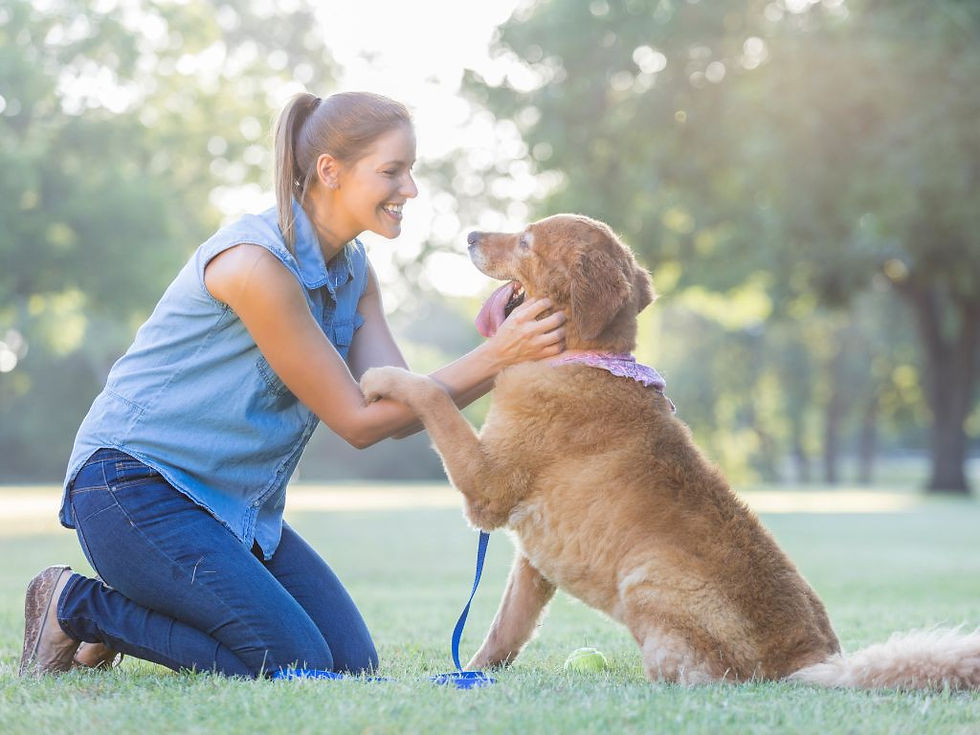Progressing Beyond Treats: Why Fade the Food?
- Jul 16, 2024
- 2 min read
In dog training, transitioning away from relying solely on food rewards is a crucial step towards fostering lasting obedience and responsiveness. While treats are effective initial motivators, diversifying rewards helps dogs generalise their training to various situations and ensures they respond reliably even when food isn't available. Discover how to smoothly transition from treats to alternative rewards, enriching your dog's training experience and strengthening their obedience in diverse environments.
Why fade the food:
Because no one wants to carry around food all the time, and we want dogs to respond regardless of whether food is present.

Steps on how to do it:
Use life rewards early on when you train a new behaviour. As soon as you are getting a reliable response to a new cue-a solid four out of every five trials-start interspersing non-food rewards with food rewards. For example, throw a ball or bring out a favourite squeaky toy to reward your dog occasionally, while continuing to use food rewards for the rest of your dog's responses.
Begin asking for more tricks per treat. In the beginning when your dog is learning something new, you should reward each right response. But once he has the hang of it, start asking him to do several cues in a row before he gets a treat, so you start establishing the idea that he doesn't get something every time.
Vary how often you reinforce, and what you use to reinforce with. You might give a treat for a single response, then a treat after three responses, then a ball toss after two responses, and so on. Eventually use more and more life rewards and fewer treats. Keep it varied to keep your dog guessing-it's exciting not to know when the next reward will come and what it will be.

Training Tip:
Be random. Avoid reward patterns such as ball toss, ball toss, treat. Also avoid reinforcement patterns such as giving a reward for every fifth response. Dogs quickly pick up on such patterns, and the training suffers accordingly.
Troubleshooting:
If your dog's behaviour starts to break down and become less reliable, that's a clear sign you are getting too stingy. Be sure to reinforce more often and with better rewards. Check that the rewards you use are actually interesting to your dog. It's not reinforcement if the rewards used aren't reinforcing.

As you phase out food rewards in training, incorporating diverse forms of reinforcement like play and praise helps your dog generalise behaviours beyond treat-based learning. This approach fosters stronger obedience and enriches your bond, ensuring enjoyable and effective training sessions. For tailored guidance, contact Doggie Diplomas to refine your training techniques and support your dog's ongoing development.






